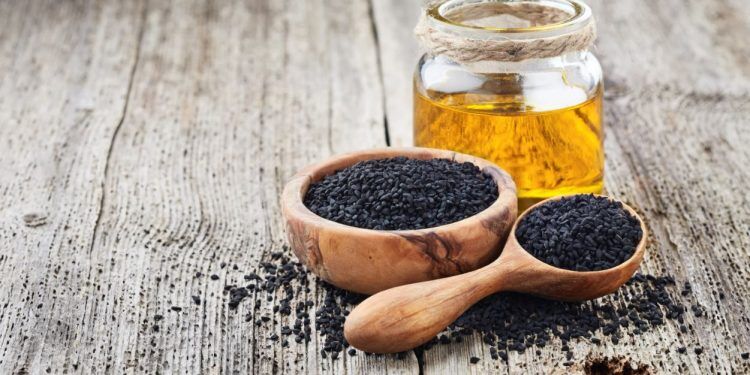For thousands of years, black seed has held a high position in the Middle East. References to the plant appear in both the Bible and the Qur’an, with the black seed found in Tutankhamun’s tomb in Egypt. While it is sometimes referred to as black cumin or black caraway, black seed (Nigella sativa) has nothing to do with any of these common kitchen spices but has a long history in traditional medicine.
Interestingly, black seed has been used in a wide range of disease complaints, including respiratory, digestive, immune, heart, kidney and liver diseases. Additionally, it was usually recommended as a general health tonic to improve overall health. More recently, contemporary research has suggested potential benefits in support of historical use.
Is black seed oil able to benefit the immune system?
As a herb, black seed has a wide range of positive effects on the human body and immune system. Black seed appears to have a number of direct and indirect effects, including:
- Stimulating and balancing immune functions
- Swelling and discomfort are soothed with anti-oxidant and anti-inflammatory activity
- It has a direct antimicrobial effect against viruses, bacteria, fungi and parasites
The function of the immune system is complex. There are multiple parts, from the white support cells that devour the invaders to the antibodies that target them for destruction.
Killer cells by nature are part of the body’s immune response which immediately attacks the irregular and infected cells. Human studies have suggested that there are benefits for black seed to significantly increase the activity of killer cells by nature. In addition, several laboratory studies (Petri dish) and animal studies have demonstrated both stimulatory and equilibrium effects on antibody responses and white blood cell activity.
Anti-inflammatory benefits of black seed oil
Black seed is rich in antioxidants and anti-inflammatory ingredients. These ingredients appear to have a potentially significant medicinal effect. The antioxidants in black seed are a potential support for balanced support stress levels. The antioxidants in black seed also appear to play a role in protecting the stomach and digestive system.
Infections are part of nearly all chronic health conditions. In human trials, black seed has shown potential benefit in a number of inflammatory conditions, including allergies, asthma, and joint pain. The benefits are apparent at least in part due to its anti-inflammatory activity.
Black seed oil has shown significant improvements in symptoms in hay fever patients within two weeks. The study authors concluded that black seed may be a viable treatment option. As for asthma, a recent analysis of all published research concluded that black seed appears to reduce symptoms, likely through its anti-inflammatory activity. For osteoporosis, two separate studies on topical applications have shown that black seed oil can relieve knee pain due to overuse. Research in human cartilage cells has shown significant beneficial activity. A recent review of research into treating rheumatoid arthritis showed clinical improvements in all five published cases using the black seed.
The antibacterial activity of black seed oil
As an added benefit, black seed shows direct anti-bacterial effects that have been documented against viruses, bacteria, fungi, and parasites.
Viruses
In a human trial of treating hepatitis C, black seed more than halved the viral load and improved clinical outcomes. Although more research is necessary, a case study of the use of black seed in the treatment of human immunodeficiency virus (HIV) showed the complete elimination of the detectable virus from the patient’s blood that had remained stable for years after treatment was stopped.
Bacteria
Helicobacter pylori is the bacterium that causes stomach ulcers in most cases. Unfortunately, it is very difficult to treat. The standard methods used for three or four drugs combined are effective in only 80% of cases. A human trial using black seed and omeprazole (a stomach acid blocker) showed similar therapeutic results to the standard triple treatment, eliminating infection in 67% of cases. Another study using black seed and honey also showed reasonable efficacy in 57% of patients in removing bacteria.
Fungi
Although evidence from clinical trials is lacking, several studies have shown an activity that balances yeast in the body as well as other fungi that commonly cause skin infections. With the current data, more studies are needed to find out whether black seed has benefits in treating local fungal diseases directly.
Parasites
With regard to parasites, evidence indicates that black seed shows activity against blood borers, a type of trigeminal. In a separate study on mice, black seed outperformed anti-parasite drugs in controlling plasmodium fungi. More research is needed to fully understand the potential of black seed in human cases, but available evidence suggests that there is some hope in treating certain types of parasitic infections.
Black bean combinations
Black seed has been used in a number of different formulations, all of which have shown potential benefits. The herb has been declared “generally safe” for use in cooking by the US Food and Drug Administration (FDA) and is available in supplement forms. Ground whole grains and extracts have been used in some studies, although black seed oil is often the most common formulation, used topically or orally. Because they contain different levels of the active substances in the herb, each combination is likely to have different therapeutic effects. More research is necessary to understand how each body can be best used in specific situations.
The main points
- Black seed has been used medicinally for thousands of years
- Contemporary research indicates that black seed may have medicinal uses due to its immune system benefits.
- Research has shown improvements in allergies, asthma, swelling in the joints, and some types of infections.
While more evidence is needed, research into black seed benefits is showing promising results, even in some difficult-to-treat cases.





![The Top & Most Popular Seafood Bucket Restaurants in Dubai for you [Never Miss]](https://cdn-bcaic.nitrocdn.com/xbqiknhylajlKDYOliCLZeRuxPCWDGHz/assets/images/optimized/rev-b04d989/uae24x7.com/wp-content/uploads/2020/09/8-seafood-in-a-bucket-scaled-e1600739237403.jpg)